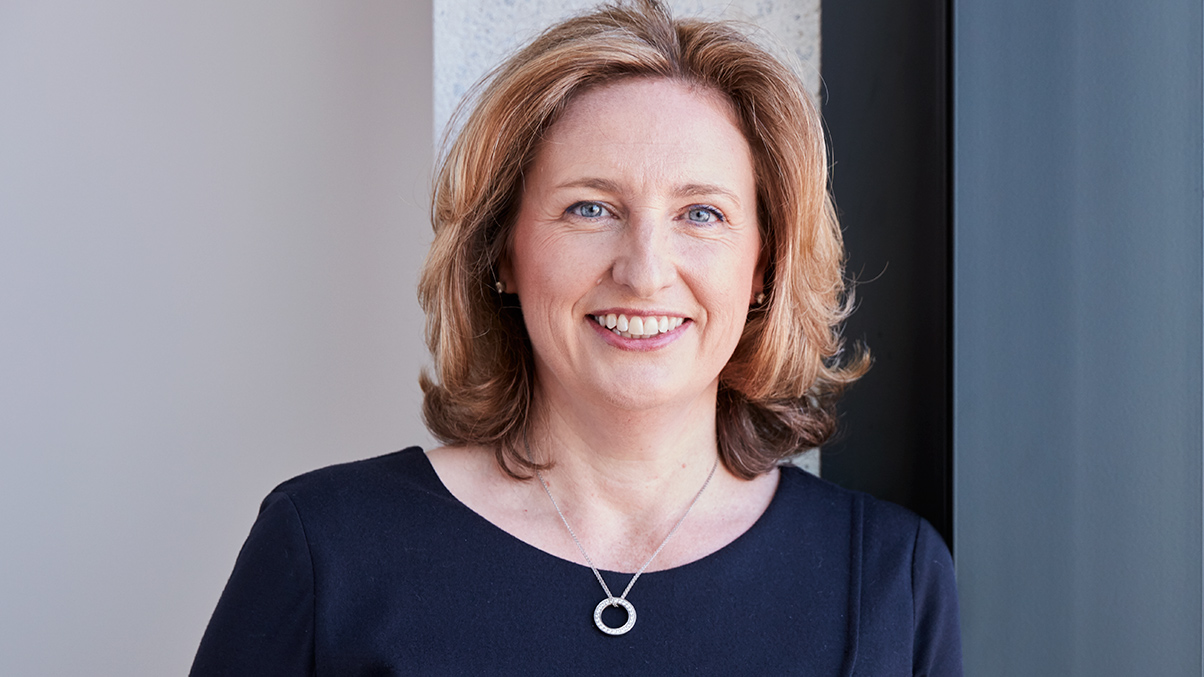Collaborative law is a voluntary process, which can be an effective and constructive route to resolving all manner of family law issues (from pre-nuptial agreements to children arrangements to the division of assets upon divorce) without going to court.
Debbie Chism, a partner in the Divorce and Family team at Stewarts, advises clients on all aspects of family law. She has particular expertise in collaborative law, having co-founded England’s first multi-disciplinary group of collaborative professionals (Creative Divorce).
Sarah Havers spoke to Debbie about her role as a collaborate lawyer and the benefits of the collaborative law process.
What is collaborative family law?
Collaborative law is a way of working creatively with a separating couple to achieve a settlement that avoids the court process.
It is a voluntary process that requires both parties to sign a participation agreement at the outset. This agreement binds them to the process and precludes their respective lawyers from representing them in future family-related litigation. The prospect of starting from scratch with new lawyers acts as a significant cost disincentive for giving up on the collaborative process and commencing legal proceedings.
The collaborative process works because the lawyers work together with their clients as a team. The clients’ priorities lead the agenda, not the lawyers’. The essence of collaborative law is achieving a consensual solution without conflict in the most constructive way possible, in line with the clients’ directions and wishes.
It works most successfully for separating couples who want to be able to have a dialogue in the future, particularly about parenting, but also generally so that they can continue to communicate in a civilised way.
It is rare for the outcome of any case to be determined through the court process. However, collaborative law removes the pressure and threat of court proceedings. It is a way of unlocking cooperation and focusing on achieving goals.
It is the most open process because everyone has to share what their ideal settlement looks like. When people are authentic and open about what they want, it often unlocks an agreement much more easily and quickly than you might imagine.
How and why did you become a collaborative lawyer?
I became a collaborative lawyer in 2006, having completed a training course.
I have always found that finding solutions with clients and family law colleagues is one of the most enjoyable and fulfilling parts of being a family lawyer. I was attracted to collaborative law since it focuses on fostering those relationships and promoting the clients’ interests as a team with your family law colleagues.
I like the creative side of the work. I enjoy finding solutions in a constructive environment rather than having outcomes imposed on clients by the court.
Are certain types of cases (or relationship breakdown) particularly suited to the collaborative process?
Shared objectives are important criteria for resolving a case collaboratively. For example, the need to co-parent for a long time can often be the shared common ground, which encourages separating couples to want to keep communicating and not be in opposition. A shared wish to achieve fairness is often another central objective, albeit fairness is a subjective concept.
Regardless of the reason for the breakdown of the relationship, for the collaborative process to work, each party needs to trust that their ex-partner continues to share their common values (such as fairness or how to bring your children up). This is possible even if you no longer like your ex-partner and your paths are no longer bound together.
However, if you cannot go into the same room as your ex-partner because you are frightened of them or unable to communicate with them, the collaborative process is not right for you.
Often in the early months of separation, it is common for one or both parties to have feelings of revenge and punishment, which can be difficult to move away from. However, the reasons for the breakdown of the relationship and these feelings must be put to one side for the collaborative process to be successful.
At the beginning of the collaborative process, the most powerful thing the parties do is prepare anchor statements about what they each want to achieve. These statements reveal their shared common values, and separating couples are often surprised and struck by how much they mirror each other as to what they want to achieve and how. The anchor statements help couples find more alignment, which they take comfort in and are reassured by.
The key to whether the collaborative process will work is the people involved and whether they have shared values, not the issue or the amount of money or when the relationship broke down or why.
For the collaborative process to succeed, it is necessary for the lawyers to have a relationship of trust with each other. They have to jettison their egos and strategies and share what they think. It is a completely different way for lawyers to work, and it frees you up to use all your effort and creativity to find a solution. It means you have two legal heads working together, rather than one, and the lawyers are not held back by what a court would order. The boundaries are set by what the clients want to achieve and less by what the court would do.
Can you give a flavour of the range of cases you have successfully resolved through the collaborative process?
The collaborative process can be used to resolve every type of case. I have used it in connection with pre-nuptial agreements, child arrangements, financial arrangements for unmarried couples, cohabitation cases and the division of assets upon divorce. There’s no limit on the value of assets that can be the subject of the collaborative process. My largest collaborative case to date has involved £300m of assets.
In your time as a collaborative lawyer, have you seen an increase in demand for the collaborative process and if so, why do you think that is?
Since I completed my training in 2006, my collaborative caseload has remained constant. I always have at least one collaborative case on the go, and I have not seen that demand really change. I think that is because there are only so many cases and clients who are able to collaborate. However, it is an option that all separating couples should consider and which I always discuss with new clients.
Having said that, sometimes the ship has already sailed if the other party has instructed a lawyer who is not collaboratively trained. There are not enough lawyers who practise collaborative work; I think some lawyers are frightened about having the option to take a case to court removed from them.
What are your top tips for resolving a divorce or separation through collaboration?
I have never had a collaborative case that did not reach a successful conclusion. I have not lost one to the court process, and the couples in all my pre-nuptial collaborative cases have gone on to get married.
I think the key to resolving a matter successfully through the collaborative process is for couples to be authentic and identify their shared values. Then, throughout the process, they must remain open with each other and keep trusting in those mutual beliefs. It is also important for the lawyers and clients to maintain momentum in the discussions. Everyone needs to continue communicating and talking and acknowledge when one person is finding something difficult or uncomfortable. Working as a team can achieve so much, so much more quickly.
The Divorce and Family Podcast
Private avenues for divorce proceedings, including mediation and arbitration, are also discussed on the Stewarts Divorce and Family Podcast.
Season one is now available on Spotify, Apple Music, Google Podcasts and other platforms, or you can listen on the player below. It covers topics including finances in a separation, what to expect in court, alternatives to court, common mistakes that can be avoided and co-parenting after a separation.
The podcast features leading lawyers from our Divorce and Family department and covers a wide range of topics to help individuals, advisors and others understand and navigate the many issues that can arise between a couple on separation. The podcast will cover all aspects of the work carried out by the department, from divorce and financial claims to issues concerning arrangements for their children.
You can find further information regarding our expertise, experience and team on our Divorce and Family pages.
If you require assistance from our team, please contact us.
Subscribe – In order to receive our news straight to your inbox, subscribe here. Our newsletters are sent no more than once a month.







